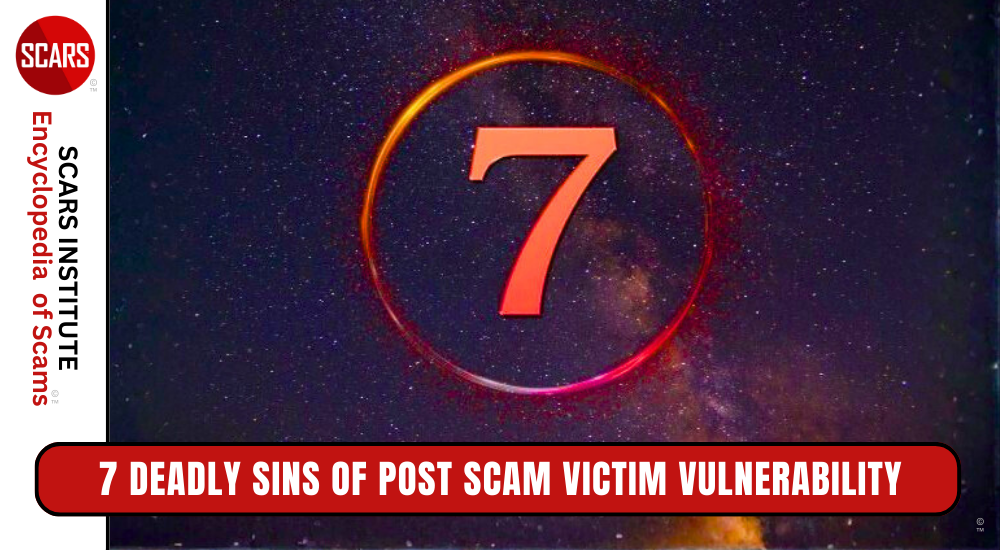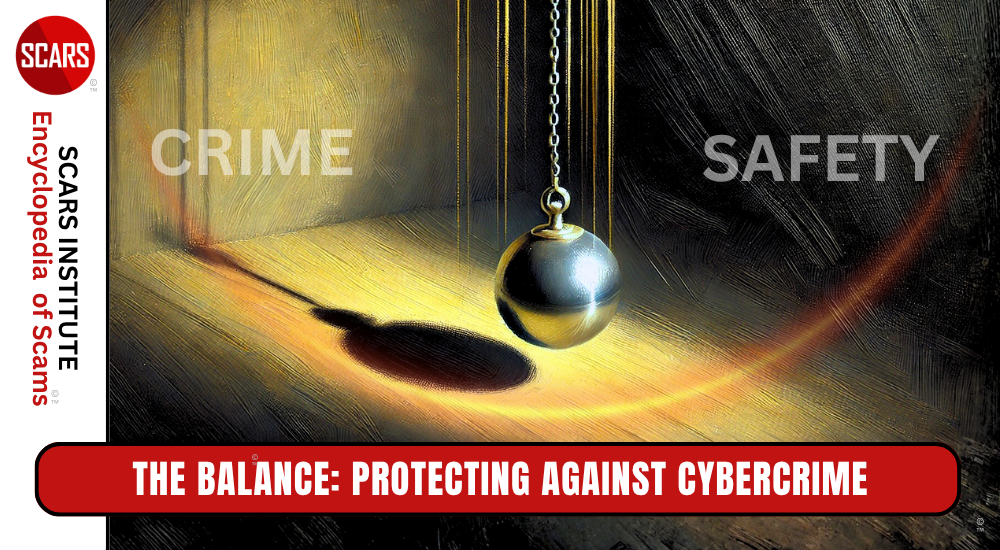
SCARS Institute’s Encyclopedia of Scams™ Published Continuously for 25 Years

FTC Issues Orders to Social Media and Video Streaming Platforms Regarding Efforts to Address Surge in Scam Advertising for Fraudulent Products and Scams
FTC issues 6(b) orders to Meta, TikTok, YouTube, Twitter, and others seeking information on how the platforms screen for misleading ads for scam advertising and fraudulent or counterfeit products
SCARS NOTE: This is a major step for public safety since it is the first crack in the Communications Decency Act section 230 stranglehold on social media platform immunity!
With fraud on social media surging, the Federal Trade Commission has issued orders to eight social media and video streaming platforms seeking information on how these companies scrutinize and restrict paid commercial advertising that is deceptive or exposes consumers to fraudulent healthcare products, financial scams, counterfeit and fake goods, or other fraud.
The amount of money consumers have reported losing to fraud and scam advertising that originated on social media platforms in scam advertising has skyrocketed since 2017. In 2022 alone, consumers reported losing more than $1.2 billion to fraud that started on social media, more than any other contact method, according to FTC data.
The Commission also is seeking information about how the social media and video streaming companies ensure that consumers are able to identify commercial advertising on their platforms as advertising.
The orders, which the companies are required to comply with by law, were sent to: Meta Platforms, Inc.; Instagram, LLC; YouTube, LLC; TikTok, Inc.; Snap, Inc.; Twitter, Inc.; Pinterest, Inc.; and Twitch Interactive, Inc. More may be send in the near future.
“Social media has been a gold mine for scammers who tout sham products and other scams that have cost consumers enormously in recent years,” said Samuel Levine, Director of the FTC’s Bureau of Consumer Protection. “This study will help the FTC ensure that social media and video streaming companies are doing everything they can to keep scammers and deceptive ads off their platforms.”
The orders will collect information about the companies’ standards and policies related to paid commercial ads and their processes for screening and monitoring for compliance with those standards and policies, including through human review and the use of automated systems. The orders also require the companies to report their ad revenue, the number of ad views, and other performance metrics, including for ads involving categories of products and services more prone to deception such as those intended to treat, prevent, or cure substance use disorders and tout income opportunities. At the heart of this though is to see if the platforms are fulfilling their responsibilities on scam advertising
These orders will help the Commission better understand how prevalent deceptive advertising is on social media and video streaming platforms, the consumers who may be harmed by that advertising, and the effectiveness of the platforms’ oversight of advertisers, including whether the companies treat English-language and Spanish-language ads differently. The study also should shed light on how the platforms create ads, including any use of generative artificial intelligence, and track, and classify ads, as well as the ad formats offered to advertisers, including shoppable ads, which allow consumers to purchase products or services directly through the ad, and virtual reality and other extended reality ads.
In addition, the Commission seeks information on how these platforms help consumers distinguish scam advertising and other commercial messages from other types of content, including disclosure tools for endorsers and influencers.
The orders seek information for the calendar years 2019 through 2023, which allows for the Commission to study relevant business conduct since the start of the COVID-19 pandemic. The orders were sent using the FTC’s 6(b) authority, which authorizes the Commission to conduct wide-ranging studies that do not have a specific law enforcement purpose.
The Commission voted 4-0 during an open meeting to issue the 6(b) orders to the eight social media and video service services to explore scam advertising.
This will be a very important step in controlling fake, fraudulent, and scam advertising, and by extension, business accounts on these platforms.
-/ 30 /-
What do you think about this?
Please share your thoughts in a comment below!
LEAVE A COMMENT?
Recent Comments
On Other Articles
- Arwyn Lautenschlager on Love Bombing And How Romance Scam Victims Are Forced To Feel: “I was love bombed to the point that I would do just about anything for the scammer(s). I was told…” Feb 11, 14:24
- on Dani Daniels (Kira Lee Orsag): Another Scammer’s Favorite: “You provide a valuable service! I wish more people knew about it!” Feb 10, 15:05
- on Danielle Delaunay/Danielle Genevieve – Stolen Identity/Stolen Photos – Impersonation Victim UPDATED 2024: “We highly recommend that you simply turn away form the scam and scammers, and focus on the development of a…” Feb 4, 19:47
- on The Art Of Deception: The Fundamental Principals Of Successful Deceptions – 2024: “I experienced many of the deceptive tactics that romance scammers use. I was told various stories of hardship and why…” Feb 4, 15:27
- on Danielle Delaunay/Danielle Genevieve – Stolen Identity/Stolen Photos – Impersonation Victim UPDATED 2024: “Yes, I’m in that exact situation also. “Danielle” has seriously scammed me for 3 years now. “She” (he) doesn’t know…” Feb 4, 14:58
- on An Essay on Justice and Money Recovery – 2026: “you are so right I accidentally clicked on online justice I signed an agreement for 12k upfront but cd only…” Feb 3, 08:16
- on The SCARS Institute Top 50 Celebrity Impersonation Scams – 2025: “Quora has had visits from scammers pretending to be Keanu Reeves and Paul McCartney in 2025 and 2026.” Jan 27, 17:45
- on Scam Victims Should Limit Their Exposure To Scam News & Scammer Photos: “I used to look at scammers photos all the time; however, I don’t feel the need to do it anymore.…” Jan 26, 23:19
- on After A Scam, No One Can Tell You How You Will React: “This article was very informative, my scams happened 5 years ago; however, l do remember several of those emotions and/or…” Jan 23, 17:17
- on Situational Awareness and How Trauma Makes Scam Victims Less Safe – 2024: “I need to be more observant and I am practicing situational awareness. I’m saving this article to remind me of…” Jan 21, 22:55
ARTICLE META
Important Information for New Scam Victims
- Please visit www.ScamVictimsSupport.org – a SCARS Website for New Scam Victims & Sextortion Victims
- Enroll in FREE SCARS Scam Survivor’s School now at www.SCARSeducation.org
- Please visit www.ScamPsychology.org – to more fully understand the psychological concepts involved in scams and scam victim recovery
If you are looking for local trauma counselors please visit counseling.AgainstScams.org or join SCARS for our counseling/therapy benefit: membership.AgainstScams.org
If you need to speak with someone now, you can dial 988 or find phone numbers for crisis hotlines all around the world here: www.opencounseling.com/suicide-hotlines
A Note About Labeling!
We often use the term ‘scam victim’ in our articles, but this is a convenience to help those searching for information in search engines like Google. It is just a convenience and has no deeper meaning. If you have come through such an experience, YOU are a Survivor! It was not your fault. You are not alone! Axios!
A Question of Trust
At the SCARS Institute, we invite you to do your own research on the topics we speak about and publish, Our team investigates the subject being discussed, especially when it comes to understanding the scam victims-survivors experience. You can do Google searches but in many cases, you will have to wade through scientific papers and studies. However, remember that biases and perspectives matter and influence the outcome. Regardless, we encourage you to explore these topics as thoroughly as you can for your own awareness.
Statement About Victim Blaming
SCARS Institute articles examine different aspects of the scam victim experience, as well as those who may have been secondary victims. This work focuses on understanding victimization through the science of victimology, including common psychological and behavioral responses. The purpose is to help victims and survivors understand why these crimes occurred, reduce shame and self-blame, strengthen recovery programs and victim opportunities, and lower the risk of future victimization.
At times, these discussions may sound uncomfortable, overwhelming, or may be mistaken for blame. They are not. Scam victims are never blamed. Our goal is to explain the mechanisms of deception and the human responses that scammers exploit, and the processes that occur after the scam ends, so victims can better understand what happened to them and why it felt convincing at the time, and what the path looks like going forward.
Articles that address the psychology, neurology, physiology, and other characteristics of scams and the victim experience recognize that all people share cognitive and emotional traits that can be manipulated under the right conditions. These characteristics are not flaws. They are normal human functions that criminals deliberately exploit. Victims typically have little awareness of these mechanisms while a scam is unfolding and a very limited ability to control them. Awareness often comes only after the harm has occurred.
By explaining these processes, these articles help victims make sense of their experiences, understand common post-scam reactions, and identify ways to protect themselves moving forward. This knowledge supports recovery by replacing confusion and self-blame with clarity, context, and self-compassion.
Additional educational material on these topics is available at ScamPsychology.org – ScamsNOW.com and other SCARS Institute websites.
Psychology Disclaimer:
All articles about psychology and the human brain on this website are for information & education only
The information provided in this article is intended for educational and self-help purposes only and should not be construed as a substitute for professional therapy or counseling.
While any self-help techniques outlined herein may be beneficial for scam victims seeking to recover from their experience and move towards recovery, it is important to consult with a qualified mental health professional before initiating any course of action. Each individual’s experience and needs are unique, and what works for one person may not be suitable for another.
Additionally, any approach may not be appropriate for individuals with certain pre-existing mental health conditions or trauma histories. It is advisable to seek guidance from a licensed therapist or counselor who can provide personalized support, guidance, and treatment tailored to your specific needs.
If you are experiencing significant distress or emotional difficulties related to a scam or other traumatic event, please consult your doctor or mental health provider for appropriate care and support.
Also read our SCARS Institute Statement about Professional Care for Scam Victims – click here to go to our ScamsNOW.com website.
















Thank you for your comment. You may receive an email to follow up. We never share your data with marketers.